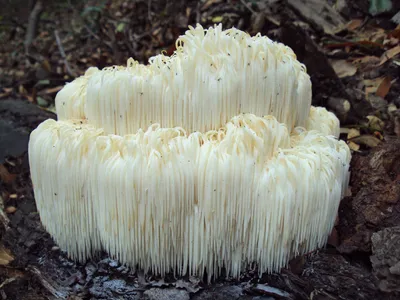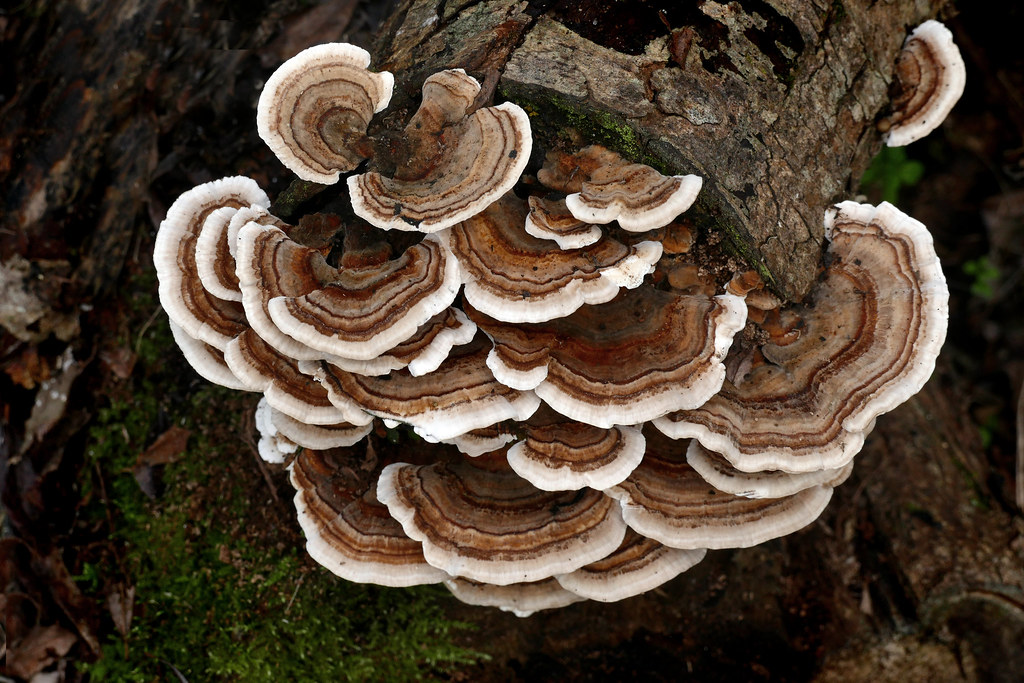Understanding the Power of Functional Mushrooms
Not all mushrooms are created equal. While some species are used recreationally for their psychoactive properties, others offer potent medicinal benefits. Functional mushrooms have been studied for their ability to support brain health, immunity, and even athletic performance. In this article, we explore the top medicinal mushrooms used in integrative healthcare and backed by emerging science.
1. Lion’s Mane: Brain-Boosting and Mood-Stabilising
 Lion’s mane (Hericium erinaceus) is a nootropic mushroom known for enhancing cognitive function and emotional balance. Its unique compounds, such as hericenones and erinacines, stimulate nerve growth factor (NGF), which plays a vital role in neural regeneration and brain plasticity.
Lion’s mane (Hericium erinaceus) is a nootropic mushroom known for enhancing cognitive function and emotional balance. Its unique compounds, such as hericenones and erinacines, stimulate nerve growth factor (NGF), which plays a vital role in neural regeneration and brain plasticity.
A human study published in the Phytotherapy Research journal found that adults with mild cognitive impairment who consumed lion’s mane daily for 16 weeks showed significantly improved cognitive function compared to a placebo group.
Additional benefits include:
- Anti-inflammatory and antioxidant effects
- Support for heart and digestive health
- Available in capsule, powder, and food form
2. Reishi: Immune Modulator and Cancer Support

Reishi (Ganoderma lucidum), also known as the “mushroom of immortality,” is revered in traditional medicine for its adaptogenic and immune-modulating properties. Research shows that reishi polysaccharides enhance the activity of immune cells and may support the body’s natural defenses against cancer and chronic illness.
A systematic review published by the Cochrane Database concluded that reishi may have a role as a supplement in cancer treatment, improving immune response and quality of life when used alongside conventional therapies.
Clinical use cases for reishi include:
- Immune support in chronic illness
- Complementary cancer care (with medical supervision)
- Capsule and powder supplement formats
3. Turkey Tail: Gut Health and Viral Defense

Turkey tail (Trametes versicolor) is a powerful immune booster with added digestive benefits. Its prebiotic properties feed beneficial gut bacteria, enhancing the intestinal barrier and reducing symptoms linked to gut dysbiosis and leaky gut.
Studies also indicate that turkey tail can support immune resilience in women with HPV. A study in the journal Global Advances in Health and Medicine found that turkey tail supplementation helped increase immune markers in breast cancer patients post-treatment.
- Rich in antioxidants and immune-regulating compounds
- Prebiotic benefits for gut flora
- Supportive in managing viral infections, including HPV
4. Bonus: Cordyceps for Stress and Physical Performance
Cordyceps (Cordyceps militaris) is valued for its adaptogenic effects and athletic benefits. As an energy enhancer, it increases adenosine triphosphate (ATP) production, which fuels cells and supports endurance. It’s also studied for use in protecting kidney function and improving libido.
Research in the National Library of Medicine supports cordyceps’ positive influence on oxidative stress, metabolism, and hormone regulation—making it a versatile tool for stress resilience and reproductive health.
Cordyceps Benefits Include:
- Increased stamina and energy output
- Kidney protection and detoxification support
- Improved libido and sexual health
Ways to Incorporate Medicinal Mushrooms
Functional mushrooms are available in several forms, including:
- Capsules and tablets
- Powders added to smoothies, teas, or coffee (heat-stable forms only)
- Liquid tinctures, sprays, and gummies
- Whole-cooked mushrooms as part of meals
Common edible mushrooms like shiitake, maitake, and lion’s mane are safe to use in cooking and provide additional nutrients when included in a balanced diet.
Who Should Be Cautious with Medicinal Mushrooms?
While generally considered safe, medicinal mushrooms may not be suitable for everyone. Situations where caution is warranted include:
- Autoimmune disorders like lupus or Crohn’s (especially during flares)
- Active immunotherapy for cancer
- Post-organ transplant patients on immunosuppressants
- Pregnancy and breastfeeding
- Known mushroom allergies or bleeding disorders
- Use of blood thinners, due to possible blood-thinning effects
Do Mushrooms Worsen Candida?
One common myth is that medicinal mushrooms worsen yeast overgrowth because they are fungi. However, research shows the opposite. Certain species, including turkey tail and reishi, have demonstrated antifungal properties that may help combat Candida and support gut immune function.
Medicinal mushrooms do not feed Candida. Instead, they may help suppress fungal overgrowth and restore gut balance when used appropriately.
Video Summary
For more evidence-based nutrition and fitness tips, subscribe to our channel:
https://www.youtube.com/@Vitality-and-Wellness
Looking for extra help with your fitness goals? Check out the personalized Nutrition Program at Parkway Athletic Club:
parkwayathleticclub.com/nutrition
Disclaimer: This content is for educational purposes and does not replace personalized medical advice.



